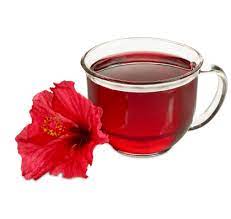
The heart is one of the most important organs in the human body. It is responsible for pumping blood throughout the body, delivering oxygen and nutrients to the cells and tissues that need them. The heart is a powerful muscle that beats approximately 100,000 times per day, and it is essential to maintain good heart health to live a long and healthy life.
The heart is located in the chest, slightly to the left of the center of the body. It is roughly the size of a fist and weighs around 11 ounces. The heart is made up of four chambers: the right atrium and ventricle, and the left atrium and ventricle. The right atrium and ventricle are responsible for pumping blood to the lungs to receive oxygen, while the left atrium and ventricle pump oxygen-rich blood to the rest of the body.
There are several risk factors that can increase the likelihood of developing heart disease, including high blood pressure, high cholesterol levels, smoking, diabetes, and obesity. Maintaining a healthy lifestyle can help to reduce the risk of heart disease.

Maintaining a healthy heart is essential for overall health and well-being. While conventional medicine offers a range of treatments for heart disease, there are also natural remedies that can help support heart health. Here are some natural remedies that helps promote a healthy heart.

- Exercise regularly: Exercise is one of the best things you can do for your heart. Regular exercise helps to strengthen the heart muscle, reduce blood pressure, and improve cholesterol levels. Aim for at least 30 minutes of moderate-intensity exercise, such as brisk walking or cycling, most days of the week.

- Eat a healthy diet: A healthy diet is essential for heart health. Focus on eating plenty of fruits, vegetables, whole grains, and lean proteins. Avoid processed foods, sugary drinks, and foods high in saturated and Trans fats.

- Reduce stress: Chronic stress can be harmful to the heart. To reduce stress, try relaxation techniques such as deep breathing, meditation, or yoga. Make time for activities that you enjoy, such as reading, spending time with friends, or taking a warm bath.

- Get enough sleep: Getting enough sleep is important for heart health. Lack of sleep can increase the risk of high blood pressure, obesity, and diabetes. Aim for seven to eight hours of sleep per night.
- Maintain a healthy weight: Being overweight or obese can increase the risk of heart disease. Maintaining a healthy weight can help to reduce the risk of heart disease. A healthy weight can be achieved through a combination of a healthy diet and regular exercise.

- Drink green tea: Green tea contains antioxidants called catechins, which can help to reduce the risk of heart disease. Aim to drink at least one cup of green tea per day.

- Take omega-3 supplements: Omega-3 fatty acids are beneficial for heart health. They can help to reduce inflammation, lower blood pressure, and improve cholesterol levels. Omega-3 supplements can be taken in the form of fish oil capsules or by eating fatty fish such as salmon or mackerel.

- Use garlic: Garlic has been shown to have heart-protective properties. It can help to reduce blood pressure, lower cholesterol levels, and prevent blood clots. Garlic can be added to food or taken in supplement form.

- Eat dark chocolate: Dark chocolate contains flavonoids, which can help to reduce the risk of heart disease. Aim to eat chocolate with at least 70% cocoa content and limit the amount to one to two ounces per day.
Herbal remedies have been used for centuries to promote heart health. Many herbs contain compounds that can help improve circulation, reduce inflammation, and lower blood pressure and cholesterol levels. Here are some of the most commonly used herbal remedies for a healthy heart.

- Hawthorn: Hawthorn is an herb that has been used for centuries to treat heart-related conditions. Hawthorn contains flavonoids and oligomeric procyanidins, which can help to improve circulation, lower blood pressure, and reduce the risk of heart disease. Hawthorn is available in supplement form or as a tea.
- Garlic: Garlic is a well-known herb that can help to reduce cholesterol levels and prevent blood clots. Garlic contains allicin, a compound that can help to improve circulation and lower blood pressure. Garlic can be consumed raw or cooked, or as a supplement.

- Turmeric: Turmeric is a spice that is commonly used in Indian cuisine. Turmeric contains curcumin, a compound that has anti-inflammatory properties. Studies have shown that curcumin can help to reduce inflammation in the body, which can help to lower the risk of heart disease. Turmeric can be consumed as a spice, or as a supplement.

- Ginger: Ginger is another herb that has anti-inflammatory properties. Ginger can help to improve circulation, reduce inflammation, and lower blood pressure. Ginger can be consumed as a tea, or added to food as a spice.

- Cinnamon: Cinnamon is a spice that has been shown to have blood sugar-lowering effects. Cinnamon can help to improve circulation, reduce inflammation, and lower blood pressure. Cinnamon can be consumed as a spice, or as a supplement.

- Ginkgo Biloba: Ginkgo biloba is an herb that has been used in traditional Chinese medicine for thousands of years. Ginkgo contains flavonoids and terpenoids, which can help to improve circulation and reduce inflammation. Ginkgo can be consumed as a supplement.

- Red yeast rice: Red yeast rice is a fermented rice product that has been used in traditional Chinese medicine for centuries. Red yeast rice contains a compound called monacolin K, which is similar to the active ingredient in statin drugs. Red yeast rice can help to lower cholesterol levels and reduce the risk of heart disease. Red yeast rice is available in supplement form.

- Hibiscus tea: Hibiscus tea has been shown to have heart-protective properties. It can help to lower blood pressure, reduce inflammation, and improve cholesterol levels.
In conclusion, herbal remedies can be a useful tool for promoting heart health. By incorporating herbs such as hawthorn, garlic, turmeric, ginger, cinnamon, ginkgo biloba, and red yeast rice into your diet or supplement routine, you may be able to help lower your risk of heart disease. As with any healthcare treatment, it is important to consult with a licensed healthcare professional before making any changes to your healthcare routine.
